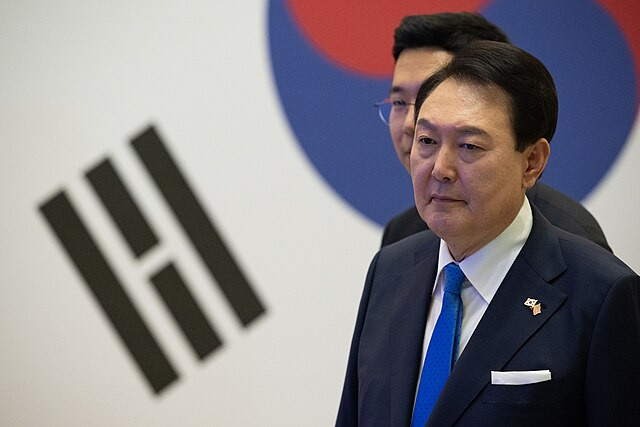South Korean President Yoon Suk Yeol, now detained and under intense scrutiny, has refused to attend further questioning by anti-corruption investigators. This development comes as the embattled leader faces accusations of insurrection tied to his failed attempt to impose martial law last month. The unfolding legal saga has plunged South Korea into its most severe political crisis in decades.
Yoon, detained at the Seoul Detention Center, has cited health concerns as the reason for his refusal to cooperate with investigators. Authorities, however, are on a tight timeline, with only 48 hours to decide whether to formally arrest him or release him. His legal team is challenging the validity of the arrest warrant, arguing that it was issued by a court lacking proper jurisdiction. The detention clock has been temporarily paused while a separate court reviews the legality of the warrant.
The crisis stems from Yoon's decision on December 3 to declare martial law and deploy troops to the National Assembly, an action aimed at breaking legislative gridlock. The move, however, was swiftly overridden by lawmakers, who later voted to impeach him on December 14, citing rebellion. Yoon's presidential powers were suspended following the vote, and the Constitutional Court is now deliberating on whether to permanently remove him from office or reinstate his authority.
Supporters of Yoon gathered near the Corruption Investigation Office for High-Ranking Officials (CIO) on Thursday, denouncing the arrest as illegitimate. "The rule of law has completely collapsed in this country," Yoon declared in a video message recorded before his detention. He argued that the CIO lacks the authority to investigate rebellion allegations and criticized the legal processes that led to his arrest.
The legal battle has revealed deep political divisions. Jung Chung-rae, an opposition Democratic Party lawmaker, described Yoon's actions as an attempted insurrection, asserting, "This impeachment trial decides whether or not to bring someone like this back to the position of commander-in-chief in control of the military." Yoon's legal team, however, has framed the impeachment as a politically motivated effort by the opposition to seize power.
The impeachment vote passed with support from the opposition-dominated parliament, as well as defections from 12 members of Yoon's own party. His lawyers have maintained that the martial law declaration was made in good faith, citing a perceived national emergency. They also contend that the measures taken were within the bounds of his presidential powers.
The investigation has been marked by high-stakes drama. Yoon resisted earlier attempts to detain him, with his presidential security service blocking access to his official residence. Authorities eventually conducted a large-scale raid, deploying hundreds of officers to detain him after a five-hour standoff.
As the Constitutional Court continues its hearings, public opinion remains polarized. The allegations against Yoon include potential charges of rebellion and abuse of power, both carrying severe penalties. If formally indicted and convicted, Yoon could face life imprisonment or the death penalty, though South Korea has not carried out executions since 1997.






